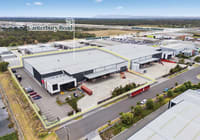
Coles property boss says building woes could force up grocery prices
A blowout in construction costs amid a population boom is thwarting Coles’ ambitions to build new supermarkets, and could ultimately drive up the price of groceries, the group’s head of property has warned.
Speaking to an audience of developers at a Melbourne industry lunch this week, Fiona Mackenzie said her location planning team had identified seven to eight “gaps” to pursue in south-east Queensland due to people leaving Victoria.

“That being said – and population growth is strong in Brisbane – we’re just struggling to build anything.”
Ms Mackenzie said a lot of the supermarkets Coles was trying to get out of the ground were based on deals struck five to seven years ago with developers.
“On those deals, construction costs have gone through the roof [meaning] the developer can’t actually deliver the supermarket for us at any of the [return] metrics, so what do you?
“We are a supermarket business, and we really need to build great supermarkets.”
This has become even more pressing given the recent surge in immigration and the fact that Coles had stepped back from the market for a “moment” and had not secured as many sites as its rivals.
“The cupboard has been a little bit bare for us, but we are picking that up and starting to invest,” Ms Mackenzie said.
The challenge of opening new supermarkets was highlighted in Coles’ latest quarterly update. Between January and March this year, Coles opened just two new supermarkets. It also closed one, meaning it grew its network by just one to 851 supermarkets. (Woolworths also opened two and closed one over the same period, but has more than 1000 supermarkets.)
It’s a particularly acute problem for Coles because its new supermarket pipeline accounts for about 30 per cent of the underlying growth of its business, Ms Mackenzie said.
“So if we are not delivering that new space pipeline then unfortunately merchants have to touch the price of milk and eggs and in the current climate that is a very dangerous thing to do,” she told an Australia-Israel Chamber of Commerce lunch.
To try and get new supermarkets out of the ground, Ms Mackenzie said Coles would consider a number of different strategies including working with the developer as a joint venture or capital partner or just acquire the asset to ensure it is delivered.
“There is no cookie cutter approach. I do dread heading up to investment committees to try to alter a deal,” she said.
“But what we do tend to do is take everything on its merits…with the right developer and the right certainty, we may adjust the metrics, we may look to partner and JV, or we may look to buy up the asset to shore up the certainty of delivery of the pipeline, which is one of my greatest risks at the moment.”
Alongside the challenge of getting things built, Ms Mackenzie admitted that the supermarket giant had not been a great partner of developers in the past, something it was working hard to address.
“Many in this room would have a mixed history in dealing with us,” she conceded.
“We were slow and often indecisive. We changed our minds at the last minute. [But] we’ve worked really hard as a team in terms of trying to be a partner of choice.”
While delivering new supermarkets is a major challenge for Coles, both Ms Mackenzie and Charter Hall Office CEO Carmel Hourigan (who was on the same AICC panel) noted the ongoing appeal of convenience retail to investors.
“We have seen pretty strong demand from Japanese investors if you can get a scale portfolio in convenience retail because it delivers a pretty strong cash yield. So you’re getting good returns with limited capital expenditure,” Ms Hourigan said.
Ms Mackenzie said Coles had accelerated a number of divestments to take advantage of this strong demand.











